What is a sprinkler clamp and where is it used?
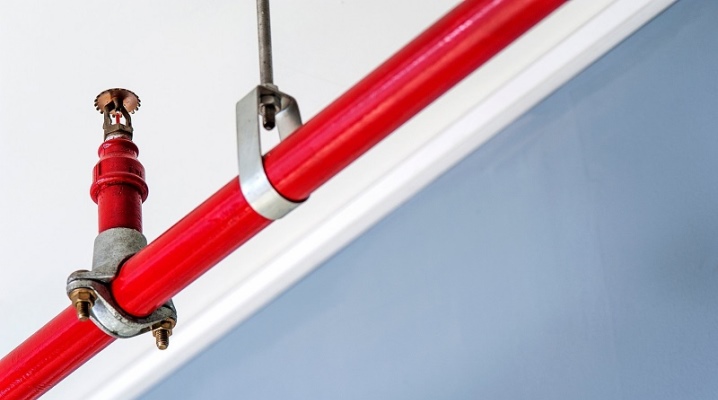
The sprinkler clamp got its name from the English word sprinkle, which translates as "to spray" or "to spray". It turns out that already in the very name of this type of product its purpose is laid - the installation of various structures for supplying water.
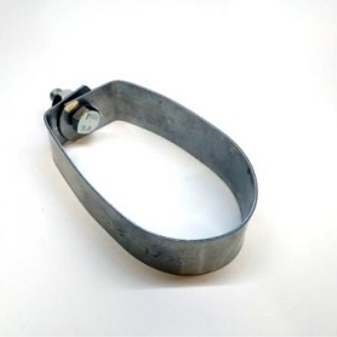
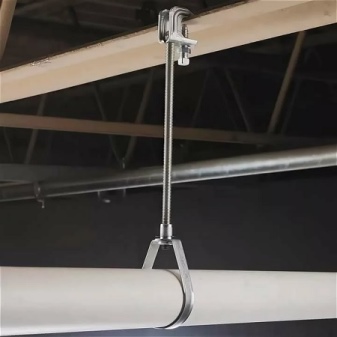
Peculiarities
The sprinkler clamp is made from narrow strips of galvanized steel. Outwardly, it resembles a pear-shaped loop, since it is optimal for installing pipes. It can also be called a loop clamp for sprinkler systems.
The main feature of these products is the possibility and convenience of adjusting the height of the suspension of pipelines using a special nut in the horizontal plane.
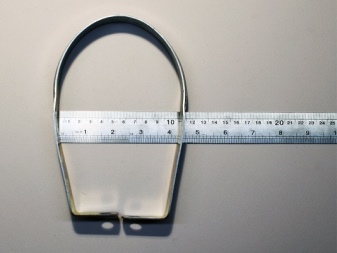
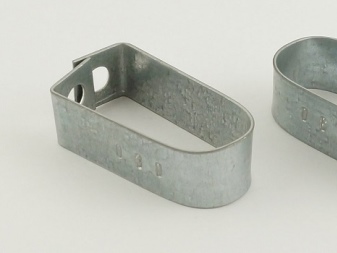
Also, the distinctive sides of fasteners are:
- speed and ease of installation due to the simple design and the presence of an adjustable mount;
- the ability to coordinate the height both during the installation of piping systems and after;
- anti-corrosion resistance;
- the ability to paint in any color at the request of the customer;
- after the end of the work, the pipes in the clamps are not fixed rigidly, but can be moved if necessary, this can be very useful in places subject to vibration;
- full compliance with fire safety requirements, due to the fire resistance of the material.
Particular attention should be paid to the fact that these latches are one-piece. When installing pipes or hoses, they will have to be pushed through the clamps, since it will not be possible to put them on a ready-made system. Despite the load, the distance between the clamps should not exceed 400 cm.
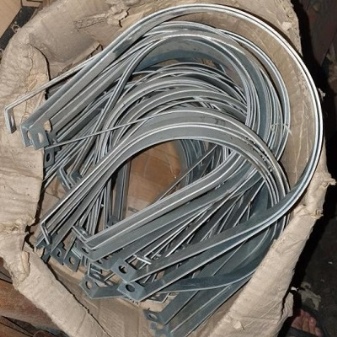
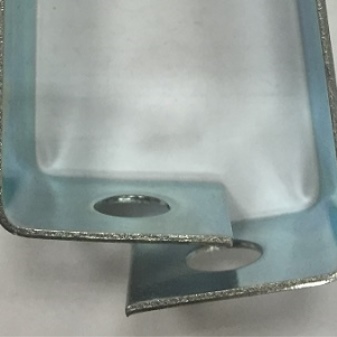
Applications
Uncontrolled fire is a dangerous phenomenon, and spreading it into residential or industrial areas will cause enormous harm. It will completely destroy property and, worst of all, it can take the lives of people. To prevent this from happening, automatic fire safety systems are installed in many buildings. One of the important elements of such structures is the sprinkler clamp. Its main purpose is to support hanging pipes or hoses that are designed to supply water or other liquid to extinguish a fire. Before starting the installation of fire extinguishing systems, you need to calculate the number of fasteners that will be needed for installation, and first place them on the ceilings.
In order to keep the possibility of adjustment in the future, it is better to fasten the clamps to the threaded connection. But if such a possibility is absent or not required, then you can install them on the pins. The size of the fasteners is selected in accordance with the diameter of the pipes that will be installed in them. In addition, you need to calculate the level of maximum load on these fasteners and pay attention to the profile size of the clamp plate. Fastening and connecting with a fire-resistant structure is the main area of use for splinker clamps, but due to their excellent technical parameters, they are also used in the installation of ventilation and irrigation systems.
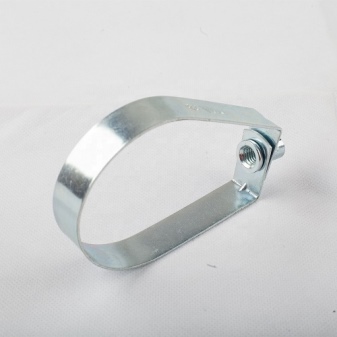
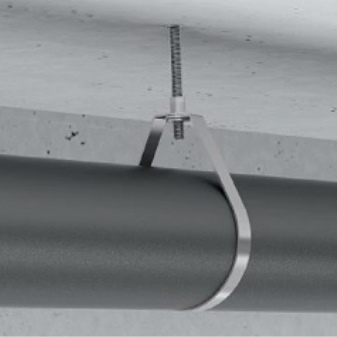
What are they?
Pear-shaped loop clamps are usually found in four versions:
- without nut;
- with a longitudinal nut;
- with a grooved nut;
- splinker clamp MSS.
For simple fasteners, the threaded connection or pins will have to be purchased separately, based on the tasks that will be assigned to them. All fasteners must comply with GOST 24140-80. This regulatory document specifies all the requirements for sprinkler clamps.
For the steel used in their manufacture, there is also GOST 52246-2004.
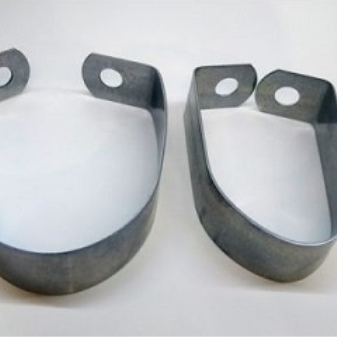
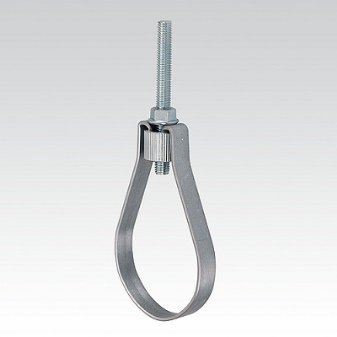
Since these clamps are used in various types of premises, including those with unfavorable conditions, there is a need for an anti-corrosion coating. For this, molten zinc is applied in a thin layer on a steel strip, with a thickness of 8-10 microns. There are many standard sizes of sprinkler clamps, their diameter ranges from 20 to 275 mm. The thickness of the steel strip, depending on the expected load, is 1 or 1.5 mm, the width of the strip is 25 mm. The diameter of the holes for the fasteners also depends on the possible forces that the fasteners will experience, and they are 10.5, 13 and 17 mm.
The minimum of these fasteners is capable of withstanding a load of 3 k / N (kilonewtons), and a maximum of 44. All other parameters can be found out by studying GOST 24140-80, which was extended for an unlimited period in 1994.
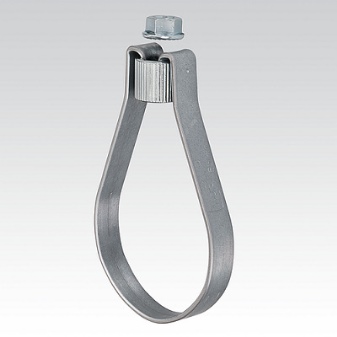
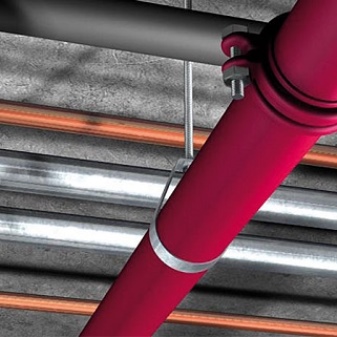
In the next video, you will find the installation of pipes on fire clamps.













The comment was sent successfully.